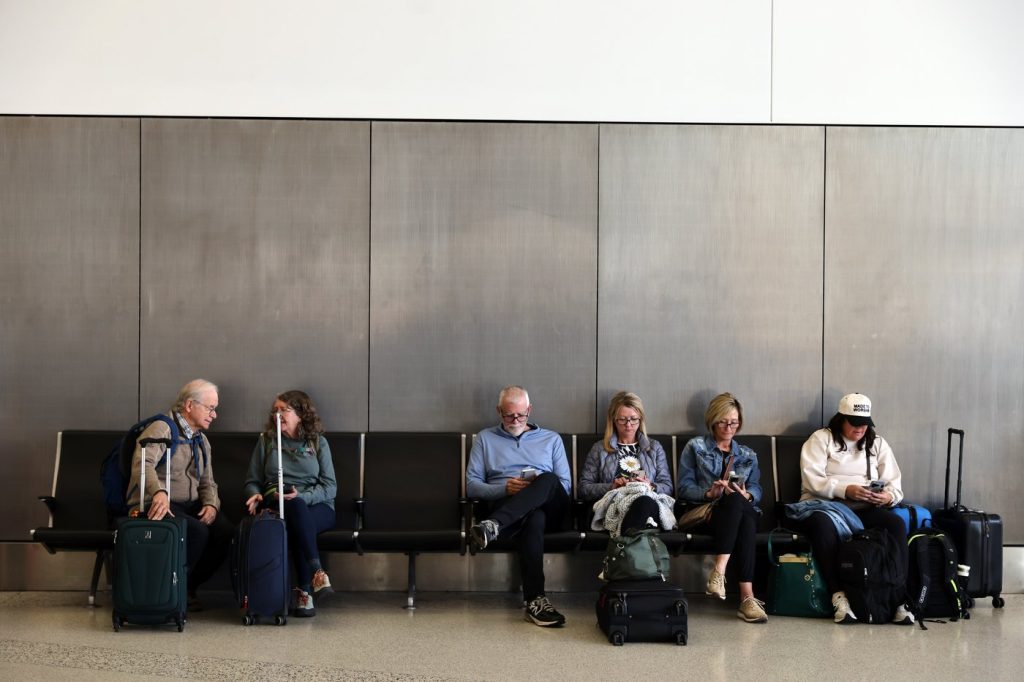If you have upcoming travel plans, you may notice fewer options on airport departure boards across the United States. Due to ongoing government shutdowns, airlines are reducing flights at major U.S. airports to ease the pressure on air traffic controllers. Many controllers have been working unpaid and under intense strain, prompting the Federal Aviation Administration (FAA) to implement these cutbacks to enhance traveler safety.
Airports in major metropolitan areas such as New York, Los Angeles, and Chicago are among those being impacted. As a result, travelers may experience more cancellations, longer delays, and fuller flights. The reduction in flights affects hundreds, if not thousands, daily, significantly altering the travel landscape during this busy period.
The list of airports impacted includes some of the busiest in the country, like Hartsfield-Jackson Atlanta International Airport in Georgia, along with major airports in Boston, Denver, Honolulu, Las Vegas, Miami, San Francisco, and Salt Lake City. Multiple airports in cities such as Houston and Washington, D.C., are also facing restrictions.
As for how long these flight reductions will last, it's uncertain. While there is hope for a resolution to the shutdown, the FAA has stated it will not lift the flight restrictions until it deems air traffic control staffing is safe. Michael Johnson, president of Ensemble Travel, emphasized the need for travelers to plan ahead, regardless of whether they have already booked flights or are just starting to make holiday plans.
Travelers are encouraged to stay informed about their flights. While airlines will notify customers of any cancellations, checking the airline’s app or flight-tracking websites can provide valuable updates before heading to the airport. It’s advisable to be at home or a hotel rather than stranded in the terminal due to a last-minute cancellation.
In the unfortunate event that your flight gets canceled, experts recommend staying calm and assessing your options. Johnson advises travelers to get in line to speak with a customer service representative if they are already at the airport. Meanwhile, connecting with the airline’s reservations through their website or calling may expedite the process. Utilizing social media platforms like X can also yield quicker responses from airlines.
Passengers might consider alternate modes of transportation such as trains, cars, or buses as the shutdown impacts all carriers. Kyle Potter, executive editor of Thrifty Traveler, pointed out that as the duration of the shutdown extends, it becomes increasingly unlikely that any one airline will be functioning smoothly. Thus, the feasibility of switching to another airline diminishes.
Refund policies are in place, as airlines will be mandated by the FAA to issue full refunds for canceled flights. However, additional costs incurred due to delays or cancellations—which aren’t under the airline's control—will not be covered unless specified by the Department of Transportation. Travelers can consult the DOT website for their airline’s specific policies regarding refunds and other costs associated with travel disruptions.
Staying home during the holidays isn't necessarily the best solution. Instead, travelers will need to exhibit extra planning and flexibility. Employing a travel adviser could alleviate some burdens, and considering travel insurance may provide an added layer of protection. Johnson has also highlighted the potential for flights to fill up quickly once the disruption ends, urging travelers to book promptly to secure arrangements.
Some additional tips for navigating the current travel landscape include traveling light to avoid long lines at baggage claim, allocating extra time for airport check-ins—particularly for anxious flyers or those with children—and maintaining a positive interaction with airline personnel, who are managing demanding situations as well. Johnson advises that kindness goes a long way, especially during such disruptive times.











